Course Tutors
Meet the BA Education course team, find out why they are interested in education, their research activities and what brings them happiness!
Click on a link to skip to a profile.
Course leads
*profile coming soon
Dr Jenny Elliott - Course Leader
 What is your role?
What is your role?
I am the BA Education Course Leader. I teach on the Purposes of Education and Joining the Academic Community modules and am a personal tutor for year one, two and three students, supervising year three dissertation projects.
What do you like most about working on the BA Education course?
Learning from our students about their different educational experiences and seeing how they start to deconstruct these, and realise quite how powerful education is for shaping and changing society. Seeing students noticing that they are agents of change and able to go out into the world and do amazing things.
What do you find most fascinating about education?
That it is in the pores of absolutely everyone and is everywhere, even in the most unlikely places.
What is your research about?
I love exploring the ways that teachers are creative in their classrooms. My time as a languages teacher has inspired my passion for education exchanges/partnerships, particularly those that link people in different parts of the world. I am interested in anything to do with teacher education, too.
Where is your happy place?
Sitting on my front door step, or on a chair on my allotment, with a cup of tea, and Daisy the dog by my side, looking at the trees and contemplating life.
Colin Morley - student lead
 What is your role?
What is your role?
I am the year three lead and I teach on Joining the Academic Community, The Developing Ethical Professional, Literacy Learning and Education and the placement modules
What do you like most about working on the BA Education course?
It’s nice to be able to work with students to shape a course, learn with them.
What do you find most fascinating about education?
That it is a way of challenging preconceptions.
What is your research about?
I was a drama/ performing arts teacher for many years and am interested in what those subjects do for us as people, as well as how they can be used to teach other subjects.
Where is your happy place?
Second hand book stores, beaches and sea. Thinking I’ve taught the dog a new trick!
Dr Jalpa Ruparelia - curriculum lead
 What is your role?
What is your role?
I teach on the Big Ideas in Education: Inclusion, Equalities, Rights and Justice in year one and am a personal tutor
What do you like most about working on the BA Education course?
The sense of ‘community’ the course engages in by working to share and learn from a diverse and interesting group of students and staff.
What do you find most fascinating about education?
That by reading, listening and being open, we can each learn to find our individual paths and maybe feel empowered to change things in small ways; see how interconnected we are in the world.
What is your research about?
I am fascinated and challenged by issues to do with injustices around race, power and coloniality both internationally and locally.
Where is your happy place?
A beach on the Indian Ocean
Dr Susan Jones
 What is your role?
What is your role?
I am the year three lead and personal tutor to some of our year three students. I convene the year three module, Research Methodology and Design in Education, and oversee the dissertation process. I also teach on the optional module, Literacy Learning and Education, which I hope some of you will choose in year one.
What do you like most about working on the BA Education course?
The BA Education is an important part of what happens in the School of Education as it's where an amazing community of students and tutors come together to explore ideas from across the breadth of the discipline. It's such a privilege to see how our students grow over the course, to broaden their understanding of this fascinating aspect of all our lives, and to develop their confidence in the difference they can make as graduates of education.
What do you find most fascinating about education?
I am from Anglesey, an island in North Wales, and was educated bilingually in Welsh and English. I've always been fascinated by how important language is to our experience of the world. As an English teacher, I developed a particular interest in the ways in which students from diverse linguistic backgrounds engage with ideas, but also in the importance of opportunities for everyone to have their experiences outside the classroom recognised and drawn upon within it.
What is your research about?
My work is focused on literacy, especially in everyday life and in informal settings. I work with an adult shared reading group in a community setting not far from Jubilee Campus. We meet to read stories and poems aloud, and to have a chat about anything people are inspired to talk about. I'm particularly interested in the ways in which people work out what things mean to them by working together and sharing their different experiences and interpretations. I think it's important that we understand literacy to be something that is broad, involves a range of knowledge, skills, processes and texts, and is an important part of how we all make sense of our lives, in our own ways and together with other people. This isn't always recognised in formal literacy teaching in schools or adult learning, and this has implications for how easy it is for people to access resources and to have their voices heard in society.
Where is your happy place?
Anywhere I can hear music and be with my dog. Preferably whilst also knitting.
Professor Shaaron Ainsworth
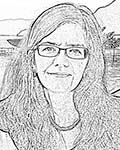 What is your role?
What is your role?
I teach a year one module, Learning and Development, and contribute to a year two module, Learning in the Digital Future.
What do you like most about working on the BA Education course?
I love learning. I am a professor of learning sciences and so I spend all day every day thinking about how people learn. The BA Education is fantastic as I get to share my passion for learning, help others learn about learning and watch you learn over the three years you are with us. You currently have no idea how much you will change.
What do you find most fascinating about education?
Education should be a great place to generate and apply theories of how people learn: after all, learning is kind of fundamental to education. But, all too often, formal education and schooling does not offer students the kind of learning experiences I would love them to have. I am fond of serious play. So my dream is that education evolves in a direction which helps everyone learn effortfully but playfully about things that matter.
What is your research about?
I research learning sciences. That involves trying to understand learning at every timescale and level: from millisecond processes in the brain to how our cultures evolved overs 10000s of years. My particular research focuses on how we use representations (such as pictures, drawing, animations, augmented reality) to help us teach and learn. I will probably make you draw at some point soon.
Where is your happy place?
Anywhere warm... the UK is too cold for me. So ideally, yoga on the beach followed by snorkelling with a sunset to die for at end the day. It is a cliche for a reason, people!
Dr Sharon Clancy
 What is your role?
What is your role?
I teach on the year two Curriculum and Politics of Knowledge module and am also a teacher in the Centre for Research in Educational Leadership and Management (CRELM) for our MA Educational Leadership and Management course.
What do you like most about working on the BA Education course?
Learning from people’s stories and how theories and ideas can help us articulate and explain our experience and give us the tools to challenge injustice and inequality.
What do you find most fascinating about education?
That, at its best, it can free us, transform and empower us, that it is part of the fabric of our daily lives, our lived experience, our communities and our space/place and that we learn from our daily exchanges.
What is your research about?
My work and my writing focus on adult education, class, culture and social justice issues and how knowledge (and whose knowledge) is valued. I have researched adult learning through an examination of the short- and long-term adult residential colleges and the Further Education sector. My PhD was a case study of a historic short-term adult residential college in its political and societal context. My last major research work was with the Horizon 2020 ENLIVEN project (2016 – 2019) which looked at policy debate, formation and evaluation in lifelong learning at the European level, focussing on the needs of young adults, and integrating theoretical and empirical perspectives from social and computer sciences.
Where is your happy place?
Singing with my band, especially in front of a dancing audience; the quiet contemplation of painting skies in oils and teaching my yoga students on a still Monday evening; watching the clouds and a fleeting sunset whilst reading outdoors, with my cat Duffy at my side.
Dr Kerryn Dixon
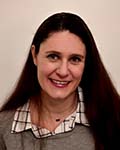 What is your role?
What is your role?
I teach the Place, Mobility and Space module to second and third-year students.
What do you like most about working on the BA Education course?
Learning from students’ experiences and how these make us make sense of the challenges in education.
What do you find most fascinating about education?
That it has the capacity to draw on a range of theories, methods and ideas from other disciplines as well as work in interdisciplinary ways.
What is your research about?
I am a literacy researcher. Most of my work focuses on early childhood. I am really interested in the ways in which critical literacy and a social justice orientation can be introduced to young children. Recently I have been working on projects where I’ve been looking at the intersections between literacy, play and technology in the global south.
Where is your happy place?
Tea and a book in a comfortable spot, and art museums.
Dr Manny Madriago
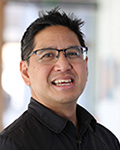 What is your role?
What is your role?
I teach on the Education Beyond Borders module in year two.
What do you like most about working on the BA Education course?
The opportunity to be able to think critically and consider ways to practice that love ethic which bell hooks so rightly professes that can occur in classrooms with humility and vulnerability. I am always learning to do this, and I would never say that I ever get this right. But, I am working to do so along with fellow students and colleagues.
What is your research about?
My work in education has always been guided by social justice and inclusion in relation to disability and race.
Where is your happy place?
Eating noodles!
Gary Mills
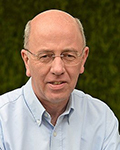 What is your role?
What is your role?
I teach the year one module, History of Education. I am also a personal tutor.
What do you like most about working on the BA Education course?
I enjoy working with people who really want to improve the lives of others through education. The enthusiasm, commitment and passion that virtually all of our students in the School of Education bring to their work is always a delight to see and I am humbled by what many of you have already achieved and peoples’ aspirations for the future. In terms of the module, History of Education, I like to think that students get key insights into times when education has developed enormously and other periods of history when education has been used to indoctrinate and control. Having these critical insights provides key perspectives on current education practices, policies and the stakeholders who ‘control’ education arenas.
What do you find most fascinating about education?
Having taught in schools and universities all my career, it is still the ‘light bulb’ moment. The time when knowing something turns to a deeper understanding and you see your pupil or student’s eyes light up. I am also fascinated how a knowledge and understanding of the past helps particularly young people to make better sense of the world around them.
What is your research about?
My research interests are centred on the teaching of the Holocaust and other genocides. I am particularly interested in how difficult histories are positioned within the curriculum and the pedagogical approaches used in classrooms and museum settings to teach about these events. This has very practical outcomes working with a range of museums and also when I get to work directly with teachers. For example, I had the pleasure of working with history teachers in Rwanda, looking at how history was taught to engender community cohesion post the 1994 genocide. I am currently exploring the use of Holocaust and Nazi photography in classrooms and I am also running a project on how the development of new technologies is being employed to enable people to be able to engage with Holocaust survivor testimonies. In the past I have also conducted research about education in the 16th and 17th centuries and the links between localities, schools and Oxford and Cambridge colleges.
Where is your happy place?
There are many. First and foremost being with my family. Being out in the natural world – I love walking in mountains. Playing and listening to music. Reading a good book. Thankfully most of these can all be done with a good glass of wine and/or a pint of beer.
Martin Myers
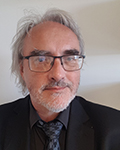 What is your role?
What is your role?
I lead the optional module, Alternative Educations, and teach on the year three module, Big Ideas in Education: Datafication in Education. I'm also a personal tutor.
What do you like most about working on the BA Education course?
Students. Colleagues. Subject.
What do you find most fascinating about education?
It's a proper inter-disciplinary social science. I'm a sociologist but I like to draw on politics, philosophy, geography, economics (even psychology if I'm really desperate). There's an ever-present, though always changing relationship between education and society; and, that often needs all those different perspectives to make sense of it.
What is your research about?
I'm interested in themes around social justice and education. Most of my work has explored the experiences of Gypsy, Roma and Traveller people with a focus on their educational experiences. I have also conducted a lot of research with home schooling families looking at how race, class and religious affiliation have an impact on how their educational practices are understood (by society or the media or policy-makers). My most recent research has looked at the experiences of marginalised students at very elite universities in the United States and the UK. I tend to come back to asking the same question which is why do children from poorer or more marginalised backgrounds tend to benefit less from education?
Where is your happy place?
Interiors mostly. Home with my family. Pubs/clubs with live music. Noisy art galleries. Any cinema (and pretty much any film), though preferably scruffy fleapits with resident ghosts.
Professor Juliet Thondhlana
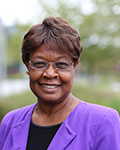 What is your role?
What is your role?
I teach the module, Education Beyond Borders, which is offered in the Spring to year two students.
What do you like most about working on the BA Education course?
The fantastic international community of tutors and students is enriching and rewarding. The tutors have wide ranging expertise and wealth of experiences drawn from local and international contexts and exciting scholarly activity in diverse areas of academic study. We have an amazing student body from a range of backgrounds who are always keen to share their experiences and perspectives in ways that animate class activities and enhance both teaching and learning. Consequently, there is powerful symbiosis involving a lot of tutor-student and student-student giving and taking in our classes. Our students have a sense of developing into agents of change building the necessary confidence to make a change in an increasingly globalising world. The modules intersect in dynamic ways and students are able to find easy links across modules and topics in ways that enhance their learning experiences.
What do you find most fascinating about education?
The ways in which it responds to local and global trends and challenges and is arguably the most powerful tool for sustainable development. My fears are that it can also be used as a weapon for human suffering and environmental destruction if it is not handled responsibly and ethically. Exploring this conflict with students and listening to their amazing ideas on how to effect the balance is refreshing.
What is your research about?
I enjoy exploring the dynamic ways in which education interacts with migration and the related concepts of language, gender, internationalisation, employability and faith. Recently I have research on the lived experiences of highly skilled migrants and refugees in the UK and Zimbabwe including their precarious journeys, social and economic integration and the role of language, education and faith in shaping their employability and entrepreneurship activities and outcomes. I have also explored the links between migration, human-trafficking and contemporary slavery.
Where is your happy place?
Anywhere where I can find peace, at home, my allotment, reading or listening to uplifting music.
Professor Pat Thomson
 What is your role?
What is your role?
I teach the year three module, New Sites and Modes of Learning.
What do you like most about working on the BA Education course?
I have been interested, for a long time, in learning outside as well as inside the classroom. I have spent rather a lot of years working in and around theatres, museums, galleries, radio stations and film sets and online, often with school students. Working on the BA Education means I get to keep thinking about these places and their pedagogies. I also get to learn about your experiences and interpretations.
What do you find most fascinating about education?
When I was a headteacher I used to always say that education ought to help you understand who you are, individually and socially, and what it means to be you, here and now, in this place. Education also ought to equip you with the "stuff" to make sense of the world you live in, and to change it for the better in the company of others. I still find this an ideal worth thinking about and acting on.
What is your research about?
I have been researching the arts in education for a long time. I am just starting a new project looking at arts rich primary schools and the arts education of primary trainee teachers. I also work on alternative provision, school change and education policy. I have an academic writing blog, Patter and am on twitter as @ThomsonPat and @VirtualNotViral. I write a lot of books; I've been hoping to get my own library shelf before retirement but I don't think I'll get there!
Where is your happy place?
Sitting on the verandah of my beach house, looking out on Ramindjeri land, spotting the resident herd of kangaroos on the rise (summer) and whales and dolphins in the bay (spring). My granddaughters are here too.
Professor Howard Stevenson
 What is your role?
What is your role?
I teach on the Datafication in Education module, and am a dissertation supervisor.
What do you like most about working on the BA Education course?
I love teaching. I have done it for years. Make no claim to be very good at it, but I always enjoy it, and when it goes well, I think students do too.
What do you find most fascinating about education?
I am fascinated by the role education can play in bringing about genuinely transformative change in society. Education will not bring about revolutionary change, but there is no revolution without education. Discuss!
What is your research about?
In recent years it has focused on education sector industrial relations in the UK, and in Europe.
Where is your happy place?
It's just before Christmas and my daughter is home. We are in the kitchen both making 'tortellini natale' - fatto a mano. The Chet Baker Christmas CD is playing, and I have a glass of Sangiovese. Family are all coming for dinner shortly.
Katy Wakelin
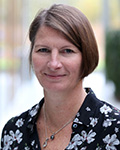
What do you like most about working on the BA Education course?
I don't know yet! Ask me in a year. This is my first year teaching on the BA Education and I will be teaching counselling modules about the lived experience of difference and diversity and counselling in education. In the past, I have taught counselling students, and I'm looking forward to translating that teaching for BA Education students.
What do you find most fascinating about education?
I am interested in communication and dialogue, as a working psychotherapist and supervisor and as a university tutor. Teaching is a two-way process, with hopefully new doors being opened for students to think differently, and challenges and new understanding for me too. I like learning and I like being challenged to take into account a new point of view.
What is your research about?
I'm interested in students' experience of shame in higher education learning - what the triggers are, how to support students, the role of status and marginalisation in shame experiences. I also write about authenticity for a psychotherapy audience.
Where is your happy place?
Laughing with family and friends and getting into really cold water (not necessarily at the same time).
Johnny Halls

What is your role?
I teach on the first year module, Learning and Development.
What do you like most about working on the BA Education course?
This is my first year formally teaching on the BA Education, so I’ll let you know soon. Having originally been a BA (Early Childhood) Education student, I look forward to seeing the course from the other side and hope the discussions are as creative, engaging and insightful as I remember!
What do you find most fascinating about education?
That how we best assist and work with learners to support their development is the greatest puzzle. Albeit a puzzle with no perfect solution, rather multiple solutions that adapt as we better understand learning processes in different contexts.
What is your research about?
Broadly, I’m interested in early science education. Specifically, my research investigates preconceptions (sometimes called misconceptions) that children bring to formal education. I’m interested in how these are formed, based on cognitive and cultural factors, along with how they can be challenged through designing new learning resources and evironments.
Where is your happy place?
Anywhere with live music, ideally somewhere outdoors.
Dr Charlie Davis
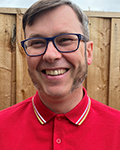 What is your role?
What is your role?
I teach on the Inclusive Education module.
What do you like most about working on the BA Education course?
I love meeting and working with people from all walks of life, backgrounds and places. I love the fact that the classroom is somewhere were the potential exists to learn something new about yourself, other people and the spaces you inhabit.
What do you find most fascinating about education?
I’m interested in the role education plays in shaping every facet of our daily lives from counting up change in the grocery store to questioning our place in the world.
What is your research about?
My research falls within the realms of participatory narrative approaches which embrace creative methods to challenge forms of social injustice. I like working with people to create knowledge about their lives on their terms to challenge forms on inequity they may be experiencing. I grew up in Northern Ireland and am fascinated by how stories provide people with a sense of belonging and otherness. Therefore, I’m drawn to forms of knowledge production seeking to unsettle ‘big’ stories which maintain forms of social division, exclusion and power imbalance. I don’t believe there is only ever one story.
Where is your happy place?
October evenings in Barcelona or late afternoons in August on a beach on the Gower Peninsula in South Wales; always with my family. Failing that, absolute power over the TV remote control, a big bag of Walkers Bugles (crisps) and the sofa all to myself; for a while, anyway.
Dr Gabriela Zapata
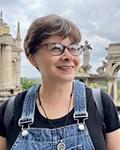 What is your role?
What is your role?
I am a new staff member in the School of Education. This upcoming semester, I will be teaching the second-year module, Researching Education Key Studies and Methods.
What do you like most about working on the BA Education course?
Working with and learning from students and colleagues.
What do you find most fascinating about education?
Education is inherently human, and it makes us unique among primates. It’s what pushes us forward into perpetual progression—intellectual, social, spiritual. It has the power to unite us, and it is the key to a better world.
What is your research about?
My research centres on the examination of multimodality, the multiliteracies framework Learning by Design, and translanguaging in second language teaching (including heritage/community languages). I focus on both students’ and teachers’ work. I’m also interested in the development and implementation of open educational materials and in open education practices. Through my work, I hope to make second/heritage language education more diverse, equitable, and critical.
Where is your happy place?
Any place where I can be close to nature—a garden, the desert, the ocean, the mountains—and with my favourite people in the world, my husband and two kids. I also love British history and literature, so I enjoy visiting historical places.
Dr Tingting Yuan
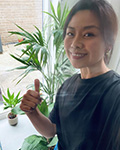 What is your role?
What is your role?
I am involved in three modules for BA Education: I teach Purpose of Education, Education Beyond Borders, and I am the module convenor and tutor for Place, Mobility and Space. I am also the course leader for MA Education (flexible).
What do you like most about working on the BA Education course?
I love to discuss the fundamental issues in education with students. I love to see my students' growth in their broader understanding and criticality in 'education'. BA Education is the place where we see these happen.
What do you find most fascinating about education?
If you view education as a field of study, you will see how cross-disciplinary education is. If you view education as a part of our social life, you will find how complex and powerful it is - education is never just about 'education'.
What is your research about?
My research focuses on discourse and practice of education in the global context. I am interested in exploring the role of education in different societies and in various power relations. More specifically, I have been researching international aid in education and educational cooperation between China and African countries.
Where is your happy place?
Many places - cafe, swimming pool (indoor, outdoor), beach, museum, restaurant... and recently my happiest place is a street near Luxembourg Gardens in early evening Paris, when I walked behind my two children watching them singing and chatting.
Dr Frans Kruger
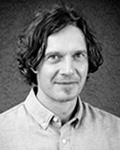 What is your role?
What is your role?
I will co-teach the module Big Ideas in Education: Inclusion, Equalities, Rights and Justice. I also serve as a personal tutor.
What do you like most about working on the BA Education course?
As a new member of the BA Education team, I love the affordance that the programme offers to explore the transformative potential of education in a collaborative and creative manner.
What do you find most fascinating about education?
I find the multifaceted and multidisciplinary nature of education intriguing as well as the various pathways one can take in exploring and learning about it. For me, education is a central aspect of living life, and as such ultimately entails practices of attending to the world around us, opening ourselves up to what it has to offer, and responding to it in a generative manner.
What is your research about?
My work in education in most part focusses on social justice pedagogies, more-than-human ecologies, indigenous philosophies, arts-based research methodologies and postqualitative inquiry.
Where is your happy place?
Spending time with my family exploring new places, where the ocean and the Tsitsikamma forest meet, sunset in the bushveld, any second-hand bookshop, museums.
Professor Geoff Wake
 What is your role?
What is your role?
On the BA Education I teach part of the optional module Maths and Science in Schools. I cover the maths issues and my good colleague, Mary Oliver covers the science. I am also a dissertation supervisor.
What do you like most about working on the BA Education course?
The thing I find fascinating about teaching is how, as the teacher, I am always learning. Every class is different, no matter how much you might try no lesson is ever the same, and you never know what will happen and where you’ll go. Even in maths!
What do you find most fascinating about education?
Well, education is life. School, college, university are just a few of the institutions where the formal aspects of learning take place. I’m constantly fascinated by watching my young grandchildren learn so much, so quickly, and their contagious joy at finding out about new things. We need to work hard to capture just a small part of that magic in our work as educators.
What is your research about?
My research is always connected in some way to mathematics learning. I have been fortunate to have worked with colleagues from all over the world in research, particularly in Europe and Japan and have learned so much from the relationships our Nottingham team has developed with these researchers - it has been an absolute joy. Our collaborative research has in all cases taken a social view of learning and has involved classrooms, teachers, students and mathematics.
My focus is often on the application of maths and in particular making sense of the world with mathematics. Recently I have been leading some large scale trials into teacher professional learning with the intention of understanding how this works and if it can lead to improvement in student learning outcomes. What has interested me is the complexity of teaching and learning and how difficult it is to make large scale change and improvement. This work confirms that it is certainly a lifetime’s endeavour to try to do a good job as a teacher and that there is always more to learn!
Where is your happy place?
Outside on a sunny day walking or cycling through the countryside. I’ve recently developed a soft spot for the North Yorkshire Moors where the sheep by far outnumber people and the spring birdlife is so uplifting - get a chance to hear the call of the curlew if you can!